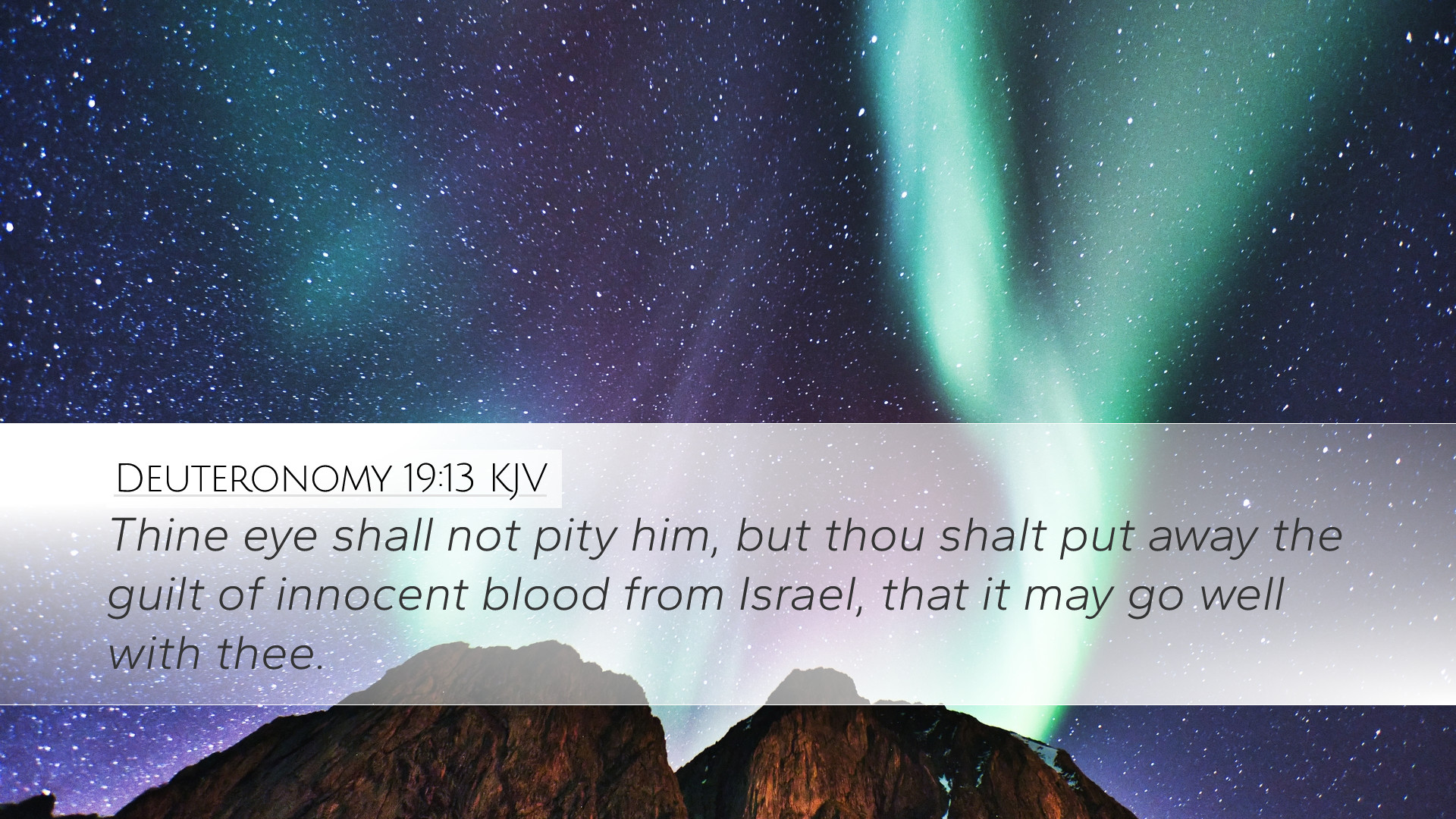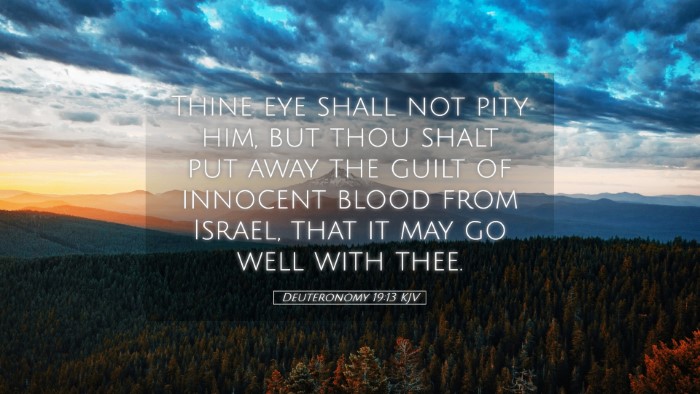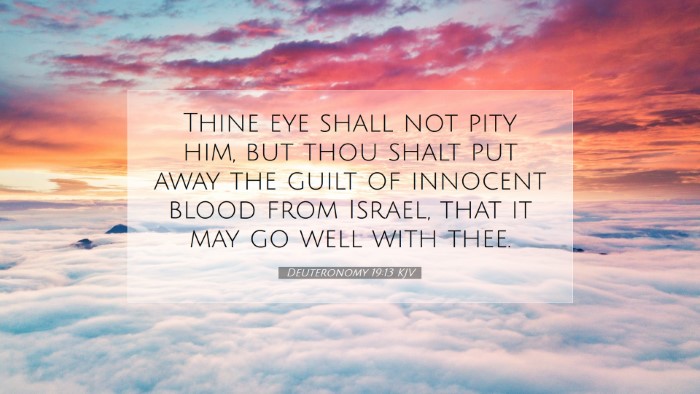Commentary on Deuteronomy 19:13
Verse Reference: Deuteronomy 19:13 - "Thou shalt not pity him, but thou shalt put away the guilt of innocent blood from Israel, that it may go well with thee."
This verse presents a significant aspect of judicial responsibility within the covenant community of Israel. It addresses the serious nature of capital punishment and the collective responsibility of the nation regarding the sanctity of life. The command is both a prohibition against leniency toward murderers and a promotion of justice as foundational for societal well-being.
Judicial Responsibility
Commentators like Matthew Henry emphasize that this command serves to uphold justice and prevent the perversion of societal order. The act of murder is not merely a personal offense but a sin against the community and against God. Thus, the legal obligation to punish the murderer arises not out of a desire for vengeance but rather out of a commitment to divine justice.
The Importance of Justice
Albert Barnes notes the imperative nature of punishing evil as a deterrent for others. The absence of justice leads to chaos and anarchy. Therefore, the nation of Israel is reminded that mercifulness towards a murderer undermines the laws of God and the very fabric of justice that preserves life. The phrase "Thou shalt not pity him" serves as a stark warning against the emotions that may cloud judicial judgment.
Collective Responsibility
In traditional Jewish thought, as highlighted by Adam Clarke, the execution of justice carries with it national ramifications. When innocent blood is not vindicated, it brings guilt upon the entire community (see Numbers 35:33). The implication here is that each member of Israel shares in the moral and spiritual health of the nation. Allowing a guilty person to escape punishment for murder brings about divine displeasure, compromising the wellbeing of all.
Rationale for Punishment
The directive to carry out justice is tied to the larger theological principle that human life is sacred, created in the image of God (see Genesis 1:26-27). Therefore, the shedding of innocent blood calls for a severe response. The connection between justice and divine blessing in the latter part of the verse - "that it may go well with thee" - underscores a covenantal relationship where obedience results in divine favor and wellbeing.
Cultural Context
Understanding the cultural milieu of ancient Israel also sheds light on this text. The society was primarily communal, where individual actions had ramifications for the group. This is corroborated by the fact that biblical law often operates on both individual and societal levels, weaving the individual into the community's broader moral fabric.
Lessons for Today
Today, pastors and theologians might draw significant implications from this verse regarding contemporary justice systems. The balance between mercy and justice remains a point of theological contention. While compassion is vital, allowing justice to be perverted results in moral decay. Each community today must strive to find the balance in the exercise of justice while maintaining the dignity of life.
Theological Reflections
From a theological perspective, the themes in Deuteronomy 19:13 touch on the attributes of God—His holiness demands justice, while His love cautions us against unbridled wrath. This tension is evident in the biblical narrative, leading ultimately to the work of Christ who embodies both justice and mercy.
Conclusion
In summary, Deuteronomy 19:13 serves as a powerful reminder of the weight of communal justice, the seriousness of innocent blood, and the profound implications of divine law. It calls contemporary believers to reflect on their societal obligations and emphasizes the enduring need for just governance rooted in the fear of God.
Final Thought: As Matthew Henry rightly remarks, accountability in justice forms the bedrock of a righteous society; and thus, believers are compelled to pursue lives that embody both justice and mercy as reflective of God's own character.


